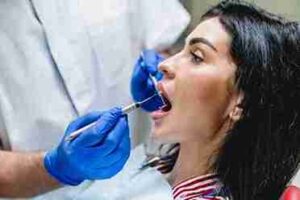Dental problems often seem to strike at the most inconvenient moments during a family dinner, while you’re on holiday, or just before an important meeting. The sudden onset of pain, swelling, or trauma can leave anyone feeling panicked. In such moments, knowing how to respond calmly and effectively can make a significant difference in both comfort and treatment outcomes.
This guide takes you through the immediate actions you should consider during various dental emergencies, offering clear, practical advice to help you stay in control until professional care is available.
Understanding What Qualifies as a Dental Crisis
A dental crisis isn’t just a mild toothache that you can brush off for a few days. It typically involves sudden, severe symptoms or injuries that require urgent attention. Examples include:
- A knocked-out tooth
- Uncontrollable bleeding from the gums or mouth
- Severe, persistent toothache
- Facial swelling affecting your ability to breathe or swallow
- Sudden damage to dental restorations (crowns, fillings, bridges)
- Trauma to the jaw or facial bones
Recognising these signs early ensures you act fast, potentially saving a tooth or preventing further complications.
Step One: Stay Calm and Assess the Situation
In any medical emergency, a clear mind is your greatest asset. Dental pain can be intense, but panicking will only cloud your judgement.
- Identify the problem: Is it pain, bleeding, swelling, or a visibly damaged tooth?
- Check for additional injuries: Particularly important after a fall or impact to the face.
- Determine urgency: If the problem involves breathing or swallowing difficulties, seek immediate hospital care.
Step Two: Manage Pain and Discomfort
While you await professional care, you can take measures to reduce discomfort.
Pain Relief Measures:
| Symptom | Suggested Action |
| Toothache | Rinse with warm salty water; take Over the counter pain relief (as advised by a pharmacist). |
| Swelling | Apply a cold compress to the outside of the cheek. |
| Minor bleeding | Bite down gently on clean gauze to stem the flow. |
Avoid applying aspirin directly to gums or teeth, as this may cause tissue irritation.
Step Three: Preserve Any Dislodged Tooth or Dental Work
If your tooth or restoration has been knocked out or damaged, time is critical.
- Knocked-out tooth: Handle it by the crown, not the root, and rinse gently in milk or saline if dirty.
- Reimplant if possible: Gently place it back into the socket, or store it in a container of milk or your saliva until help is available.
- Broken dental restoration: Keep it safe and dry, this may help with quicker repairs.
These steps can mean the difference between saving and losing a tooth.
Step Four: Contact an Emergency Dental Professional
If your situation is severe, contacting an emergency dentist in Plymouth should be your next move. These professionals are equipped to handle urgent situations like tooth extractions, repair work, and complex pain management.
When calling, be ready to provide:
- Details of your symptoms and when they started
- Any known allergies or ongoing medications
- The steps you’ve already taken
Prompt communication ensures you’re given the earliest available appointment, reducing the risk of complications.
Step Five: Understanding Specific Emergencies
Some dental issues require specialised handling:
- Cracked or fractured tooth: Rinse your mouth with warm water and use a cold compress to reduce swelling.
- Lost filling or crown: Avoid chewing on that side; temporary dental cement from a pharmacy can help until your appointment.
- Sudden severe infection: Facial swelling, fever, and intense pain may indicate an abscess. These should never be ignored, as they can spread quickly.
If your dental crisis involves missing teeth and long-term solutions, you might be recommended advanced treatments such as a dental implant Plymouth to restore function and appearance.
Step Six: Preventing Future Dental Emergencies
While some accidents are unavoidable, many dental crises can be minimised with proactive care:
- Maintain regular dental check-ups (every 6 months)
- Wear mouthguards for sports or activities with impact risk
- Avoid biting down on hard foods, ice, or objects
- Practise good oral hygiene, brushing twice daily and flossing once
A preventive approach reduces the likelihood of urgent dental problems interrupting your life.
Video Link – Dental Implants in Plymouth | Cost, Procedure & Benefits
When to Head Straight to A&E
Sometimes, even before visiting a dentist, hospital care is the priority. Seek A&E assistance if you experience:
- Facial swelling affecting breathing or swallowing
- Severe jaw injuries with possible fractures
- Heavy bleeding that doesn’t stop after 10–15 minutes of pressure
These symptoms can indicate life-threatening situations that require immediate hospital intervention.
Common Myths About Dental Emergencies
| Myth | Truth |
| “A toothache will go away on its own.” | It often worsens without treatment and may lead to infection. |
| “Cold compresses cure all dental pain.” | They help with swelling but don’t address the root cause. |
| “Over-the-counter gels fix serious tooth issues.” | They only provide temporary relief. |
Understanding the facts ensures you respond effectively and avoid risky delays.

The Role of Mouthguards in Preventing Dental Injuries
Mouthguards are simple yet highly effective tools in protecting your teeth during physical activities. They act as cushions, absorbing shocks and reducing the risk of chipped, fractured, or knocked-out teeth.
Benefits of Wearing Mouthguards:
- Protect teeth from direct impact
- Prevent injuries to soft tissues (lips, tongue, gums)
- Reduce risk of jaw fractures
- Help athletes avoid costly dental treatments
Custom-fitted mouthguards from your dentist offer the best protection and comfort compared to over-the-counter versions. Whether you play contact sports or enjoy recreational activities, wearing a mouthguard is a proactive step in reducing dental emergencies.
Quick Reference: First Response Checklist
Here’s a summary of steps to follow when dental trouble strikes:
- Stay calm and identify the problem.
- Manage pain with safe, recommended methods.
- Preserve any knocked-out tooth or restoration.
- Contact an emergency dental professional immediately.
- Follow tailored steps for specific types of dental injuries.
- Seek hospital care if symptoms affect breathing or swallowing.
Keeping this checklist in mind can help you act quickly and confidently.
Conclusion
Dental crises are stressful, but the right first response can make all the difference in preserving your oral health. By staying calm, managing immediate symptoms, and contacting the right professional promptly, you give yourself the best chance of a positive outcome. Whether it’s urgent pain relief or advanced solutions like tooth replacement, timely action matters. For trusted emergency care and restorative treatments in urgent situations, residents of Plymouth can rely on experienced dental professionals to restore comfort and confidence quickly.




